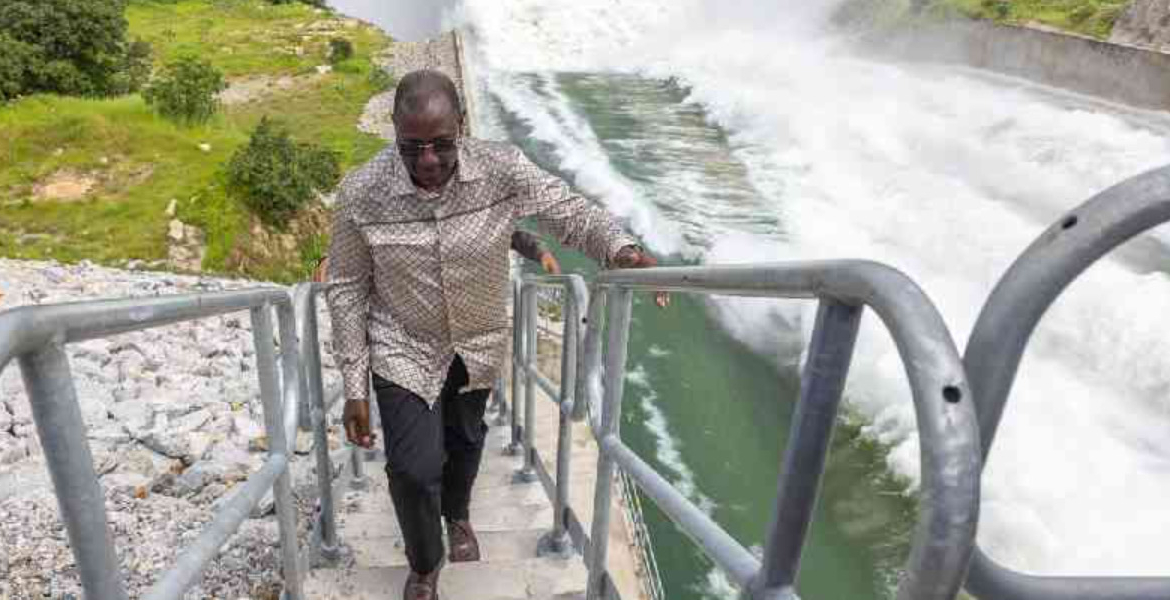Ruto Backs Nile Power Deal, Pledges to Mediate Dispute

Kenya has backed Ethiopia’s Grand Renaissance Dam following its official launch, with President William Ruto urging continued dialogue among Nile Basin countries to address regional concerns.
The Grand Ethiopian Renaissance Dam (GERD), located in the Benishangul-Gumuz region near the Sudanese border, was formally inaugurated by Prime Minister Abiy Ahmed in a ceremony attended by regional and international leaders. Built at a cost of $5 billion over more than a decade, the dam is expected to generate over 5,000 megawatts of electricity, with a potential capacity of 6,000MW.
Prime Minister Abiy described the dam, whose reservoir has been named Nigat Lake (Dawn Lake), as a cornerstone of Ethiopia’s development and a symbol of national self-reliance. President Ruto, invited as chief guest at the event, praised Ethiopia’s efforts to harness its natural resources for development and highlighted the GERD’s importance to the continent’s energy future.
He also acknowledged the ongoing tensions over the dam’s impact on Nile water flows and emphasised the need for continued talks based on compromise, trust, and respect for international law. “Kenya stands ready to help bridge gaps and foster lasting consensus,” he said.
Kenya’s position reflects its interest in expanding regional energy cooperation while maintaining diplomatic balance. In 2022, the country signed a power purchase agreement with Ethiopia linked to an earlier dam on the Omo River. Under this agreement, Kenya receives 200MW of electricity, a figure expected to double to 400MW by late 2025.
The deal also considered environmental concerns related to Lake Turkana, which is fed by the Omo. The launch ceremony drew officials from across Africa and beyond, including representatives from South Sudan, Somalia, Barbados, the African Union, and the United Nations. Somalia’s presence was particularly notable in light of recent tensions with Ethiopia over its engagement with Somaliland, as well as its past alignment with Egypt on Nile water issues.
Despite the dam’s completion, Egypt and Sudan continue to express strong opposition, citing concerns over potential disruptions to the downstream flow of the Nile. Both countries argue that Ethiopia’s unilateral filling and operation of the dam pose serious risks to their water security. Ethiopia maintains that it has the sovereign right to develop the river for domestic use and insists that the dam does not threaten downstream nations.





Add new comment